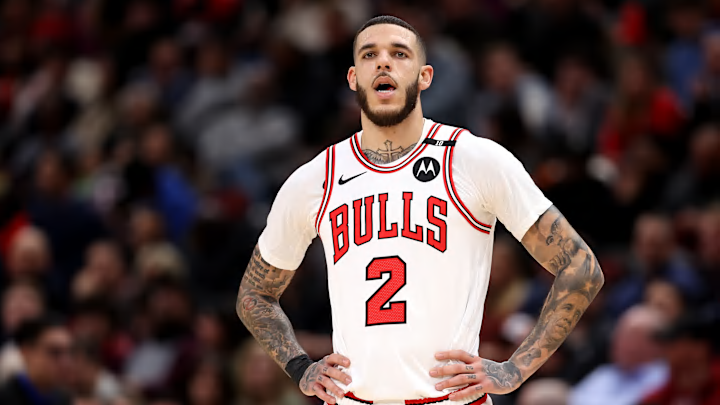Since firing Tom Thibodeau in 2015, the Chicago Bulls have been the epitome of average. They've won between 39 and 42 games in five of those 10 seasons, maxing out at 46-36 with a gentleman's sweep loss in the first round of the 2022 NBA Playoffs.
Chicago has finally moved on from its flawed vision for success, but the recent Lonzo Ball trade is a painful reminder of a haunting reality: It never seems to accept its conditions until it's too late.
The Bulls parted with two franchise cornerstones between the 2024 offseason and the 2025 NBA trade deadline: DeMar DeRozan and Zach LaVine. Both players ended up with the Sacramento Kings, with DeRozan departing via a sign-and-trade and LaVine exiting through a three-team in-season deal.
The latest domino to fall saw the Bulls send Ball to the Cleveland Cavaliers in exchange for 3-and-D wing Isaac Okoro.
BREAKING: The Chicago Bulls are trading Lonzo Ball to the Cleveland Cavaliers for Isaac Okoro, sources tell ESPN. pic.twitter.com/W0FTrRhe7y
— Shams Charania (@ShamsCharania) June 28, 2025
Unfortunately, just like the DeRozan and LaVine moves, Chicago received significantly less than they could've had they moved Ball sooner than they ultimately did.
Happy for Lonzo Ball, hope he experiences the Caruso arc in Cleveland.
— Steph Noh (@StephNoh) June 28, 2025
I'm perplexed why the Bulls took this deal for Okoro instead of trading Ball at the deadline last year to the Grizz for long term salary (probably Marcus Smart) + a first round pick.
The Bulls' most fatal flaw was thus revealed: A refusal to accept when their vision has run its course, thus causing the assets they could've received for their top players to dwindle.
Bulls waited far too long to trade Lonzo Ball, DeMar DeRozan, and Zach LaVine
There was a time when Chicago could've received first-round draft picks in separate trades revolving around Ball, DeRozan, and LaVine. The Bulls were struggling to achieve ideal team success, but that talented trio continued to be coveted by those around the NBA.
Rather than accepting that its fate had been sealed as a team in limbo, however, Chicago stubbornly refused to embrace reality and ended up receiving pennies on the dollar for all three.
In the DeRozan sign-and-trade, the Bulls received Chris Duarte and two future second-round draft picks. In the LaVine deal, they brought back Zach Collins, Tre Jones, Kevin Huerter, and the 2025 first-round draft pick that they previously traded to acquire DeRozan.
With all due respect to the players and assets received, it was a far less lucrative return than the Bulls were once in line to receive for those multi-time All-Stars.
The Ball trade has continued the tradition, as the former No. 2 overall draft pick's injury history has inevitably limited his trade value. Rather than accepting that it was time to move on when the signs were clear and contenders were looking for help at the deadline, the Bulls held on to hope that their fractured vision would yield different results.
As a result, a trade that could've brought in a first-round draft pick was instead decreased in value to gambling on Okoro's polarizing talent and trajectory.
It's perhaps the greatest indictment of Bulls front offices both past and present. There's no question that they've known how to assemble talent, but when it comes time to make the difficult decisions that can take a .500 team to the next level, they've simply refused to adapt.
One can only hope that Chicago will experience greater success as it weighs its options on the Nikola Vucevic front this summer.
